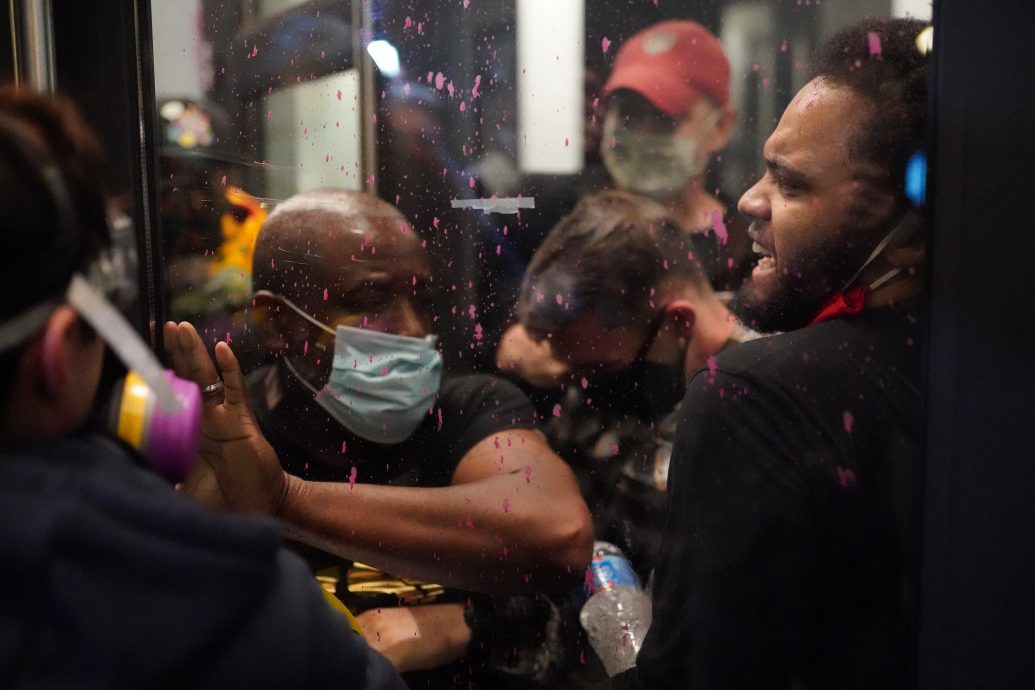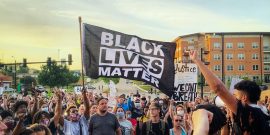It is better to embrace the freedom of moral and intellectual diversity across institutions.
Irving Kristol’s Rules for Nihilists
Many of us now feel old, detached even, before our time. The beliefs, attitudes, mores that our parents, clergy, coaches, teachers, and other authority figures, almost unconsciously imparted to us, seem increasingly like museum pieces. Should we consign individualism, competitive striving, personal accountability, to say nothing of a belief that we live and act under God and the moral law, to an antiquated, bigoted past? In is the new victim slick and its reduction of the person to gender and race—its symbology sits on your Nike apparel, emblazoned on sporting venues, touted by leading corporations. Out is the fabric of liberty and order, honesty and sobriety, diligence and thrift. The symbology of these virtues may become synonymous with white supremacy, the ontological core of American identity, we are increasingly told. The Smithsonian Museum for African American History and Culture has pedagogical plans on this front.
We confront the following question: “what if the “self” that is “realized” under the conditions of liberal capitalism is a self that despises liberal capitalism, and uses its liberty to subvert and abolish a free society?” This question was asked forty eight years ago by Irving Kristol in his magnificent 1972 lecture “Capitalism, Socialism, and Nihilism,” delivered to the twenty fifth anniversary meeting of the Mont Pelerin Society. Kristol understood well the problems of liberal democratic society when it is detached from metaphysical and spiritual goods. He underscores what he thinks are the tendencies for such an order: a vacuous liberty increasingly perceived as unworthy of defending and the turn to a pathological, if not socialist tinged, notion of the good. The outcome, Kristol feared, would be a sickness leading to death. His insights in this essay clear a path forward during our own sickness in 2020.
Nihilists Among Us
Kristol presciently warns about the dangers of what we call “woke capitalism,” only he, more aptly, terms it nihilism: “The enemy of liberal capitalism today is not so much socialism as nihilism.” (emphasis original) The capitalists are ever perceiving, but never understanding, “Only liberal capitalism doesn’t see nihilism as an enemy, but rather as just another splendid business opportunity.” But not all preferences are created equal, as the economists are wont to tell us. Some come from the wickedness of our hearts, others come from a quest for meaning endemic to the human soul. We want to know that our choices matter, that our language enacts the truth of things.
Has the voice of liberalism vindicated a free society? On this question, Kristol opens his lecture by noting the enormous intellectual strides that many Mont Pelerin members had achieved for free markets. In fact, they had made socialist arguments intellectually disreputable. But, Kristol asks:
If the traditional economics of socialism has been discredited, why has not the traditional economics of capitalism been vindicated? I should say that the reasons behind this state of affairs are quite obvious and easily comprehensible—only they are terribly difficult to explain to economists.
The economist easily espouses the modern notion that government cannot prescribe a comprehensive good without it becoming authoritarian. Kristol does not disagree here, but he notes that the soul does go beyond economics and the infinite diversity of choice. In short, we cannot rest on this limited justification for liberalism. We need a moral justification for the freedom and order of bourgeois life. And the Left, in any of its manifestations, certainly does not dismiss with morality.
“Today, the New Left is rushing in to fill the spiritual vacuum at the center of our free and capitalist society.” We should ask ourselves Kristol’s question: Why is liberal society so vulnerable to such critiques?
If the “Old Left” has been defeated—the Left of central planning that promised growth and prosperity—its “socialist impulse” spawned other strands of thinking and practice rooted in “fraternity” and “community” that the bourgeois capitalist order struggled to repel. This New Left finds the liberty of the liberal order wanting. They reject the sovereignty of the individual and the consumer and its fruits: SUVs and pickup trucks, football tickets and fast food meals, single-family housing and shopping malls, the open road and its endless choices. The New Left remains pre-modern like that, they aim to make us good on their terms and then we become free, Kristol observes. Americans have traditionally demurred this straightjacket, but not merely, because it is boring in its conformity, to say nothing of its embryonic tyranny, but owing to its wrongheadedness, that it misses something crucial not only about liberty but about virtue. The New Left resolves the endless tension of ordered liberty in favor of the order that pleases them. To do so they must kill the “common man” and the market because this is where his choices matter most.
Quest for Control
Nowhere is this more true, Kristol notes, than in the environmental movement, which offers the Left an almost unparalleled field to shape the economy because they are remaking the world for all of us, for our own good. As Saikat Chakrabarti, then Chief of Staff to Alexandria Ocasio-Cortez, remarked in 2019 about the Green New Deal, “The interesting thing about the Green New Deal, is it wasn’t originally a climate thing at all. Do you guys think of it as a climate thing? Because we really think of it as a how-do-you-change-the-entire-economy thing.” The Green New Deal reveals that common economic choices most of us have made all of our lives will suddenly be precariously legal and egregiously expensive. Energy will become a luxury good.
The nihilism label is apt because capitalists now actively engage in selling products and services that corrupt the souls of their purchasers. They are willing to undermine the social and political order that upholds their own businesses.
A similar impulse issues from the ideological heart of Black Lives Matter, with its call to abolish the nuclear family, defund the police, depopulate much of the prisons, undermine the authority of America’s constitutional legacy and institutions, while doing virtually nothing to stop the lethal private violence that constitutes one of the greatest threats to the urban poor. There is an acknowledgment here by BLM that a bourgeois society needs the authority of the family, police, prisons, and its political history to ensure its existence, its order and liberty. But if you are at odds with the bourgeois thing, then you are at odds with its legal and cultural framework. Perhaps, America relies too much on police and prisons for order on the street. Does that mean we repudiate ourselves in full rather than enact criminal punishment reforms? Hawk Newsome of Greater New York Black Lives Matter succinctly made the case for full repudiation: “If this country doesn’t give us what we want, then we will burn down this system and replace it. All right?”
We will be made free.
“Today, the New Left is rushing in to fill the spiritual vacuum at the center of our free and capitalist society.” As it was in 1972, so it is in 2020. We should ask ourselves Kristol’s question: Why is liberal society so vulnerable to such critiques? We lost our “Protestant ethos” and the moral sense that connected it with the “bourgeois virtues” of work, merit, and honesty. Translation: the liberal society must be just, meaningful, lovely, full of happiness and hope, if it is to be worthy of a defense. The absence of such a justification, Kristol argues, has resulted in egalitarianism becoming the anchor of our liberal order, the only moral justification now available to a society that has lost its spiritual and moral essence. We need the truth. In its absence, we will invent it.
It gets worse, though. Egalitarianism is a temporary respite, Kristol notes, from much more sinister forces. The darkness in our hearts, when those hearts are bereft of moral formation, is much deeper and more explosive than either the anodyne Left or Right can acknowledge. We see the early returns in the unsatisfying nature of cancel culture for the woke, who actually seem to enjoy consuming moderate liberal types to a higher degree than actual heretic conservatives. So we contemplate the somewhat delicious prospects of the woke eating the woke. Footage of Antifa rioters screaming and dumping trash on Mayor Ted Wheeler of Portland, Oregon—who largely supports their protesting and tolerates their rioting—are illuminating. The more ominous thought is if we will eventually face those strong, darker gods that gifted us fascism and communism. Love is dead, but war remains.
The nihilism label is apt, Kristol observes, because capitalists now actively engage in selling products and services that corrupt the souls of their purchasers. They are willing to undermine the social and political order that upholds their own businesses. It doesn’t get much worse than that. “Large corporations,” he notes, “today happily publish books and magazines, or press and sell records, or make and distribute movies, or sponsor television shows which celebrate pornography, denounce the institution of the family, revile the “ethics of acquisitiveness,” justify civil insurrection, and generally argue in favor of the expropriation of private industry . . .” Yes and good night.
Kristol lands on what many of us perceive to our dismay: the young and the powerful hold their civilization in contempt. “What medicine does one prescribe for a social order that is sick because it has lost its soul?” The problem is that both doctors and patients “are suffering from the same mysterious disease.” We have lost the ability to see reality in its full amplitude of good and evil, giving us the knowledge and wisdom of how to act, of how to conduct ourselves honorably and justly in a society of free and responsible persons. The only way back is what Titus Techera has called the path of suffering so that we can understand the truth and beauty of freedom and its nobility.
Roll up your sleeves and dust off the old tomes of religion and classical philosophy that we seem to have misplaced. And start putting them into practice. Mayor Wheeler needs your counsel.



